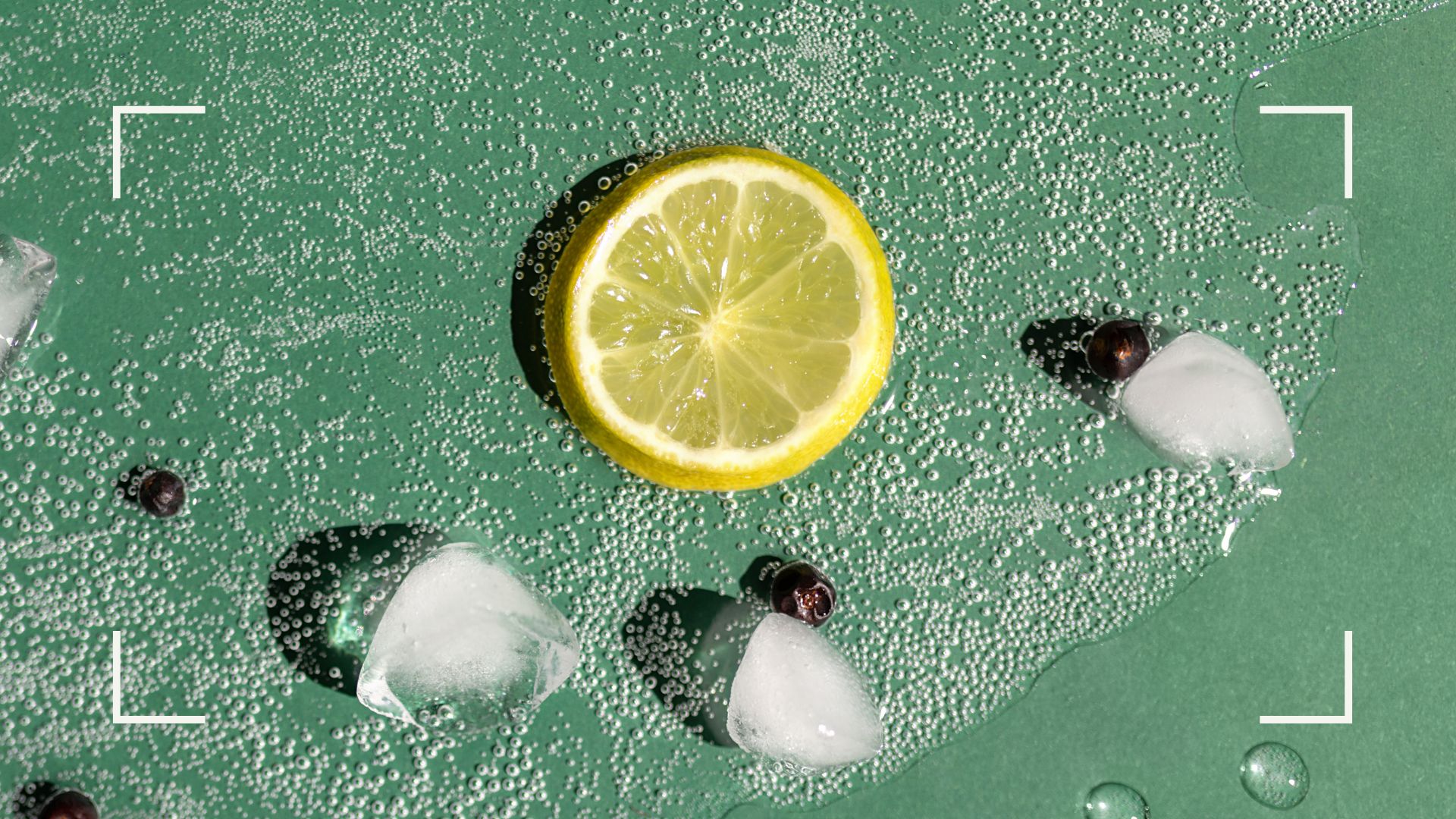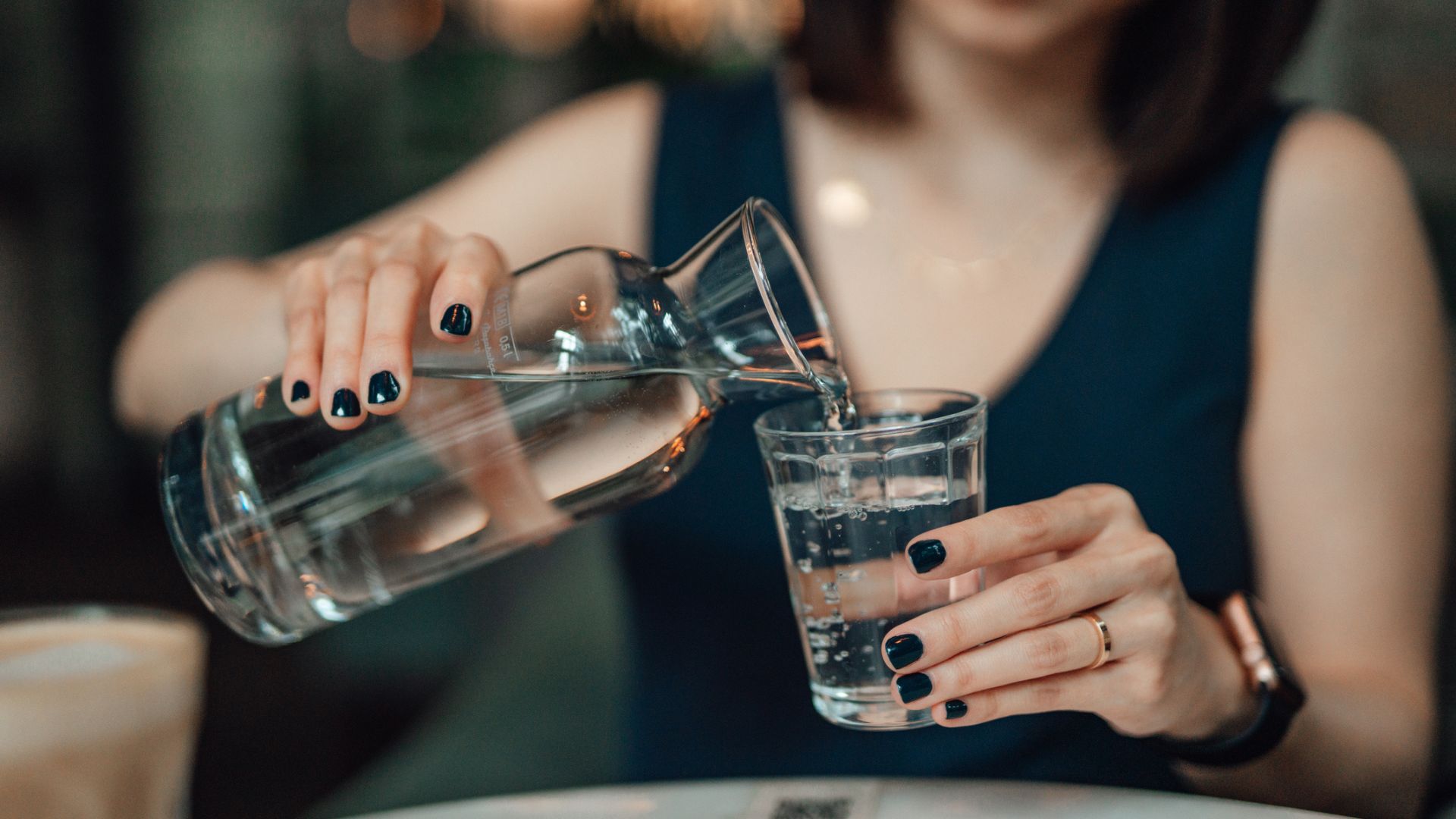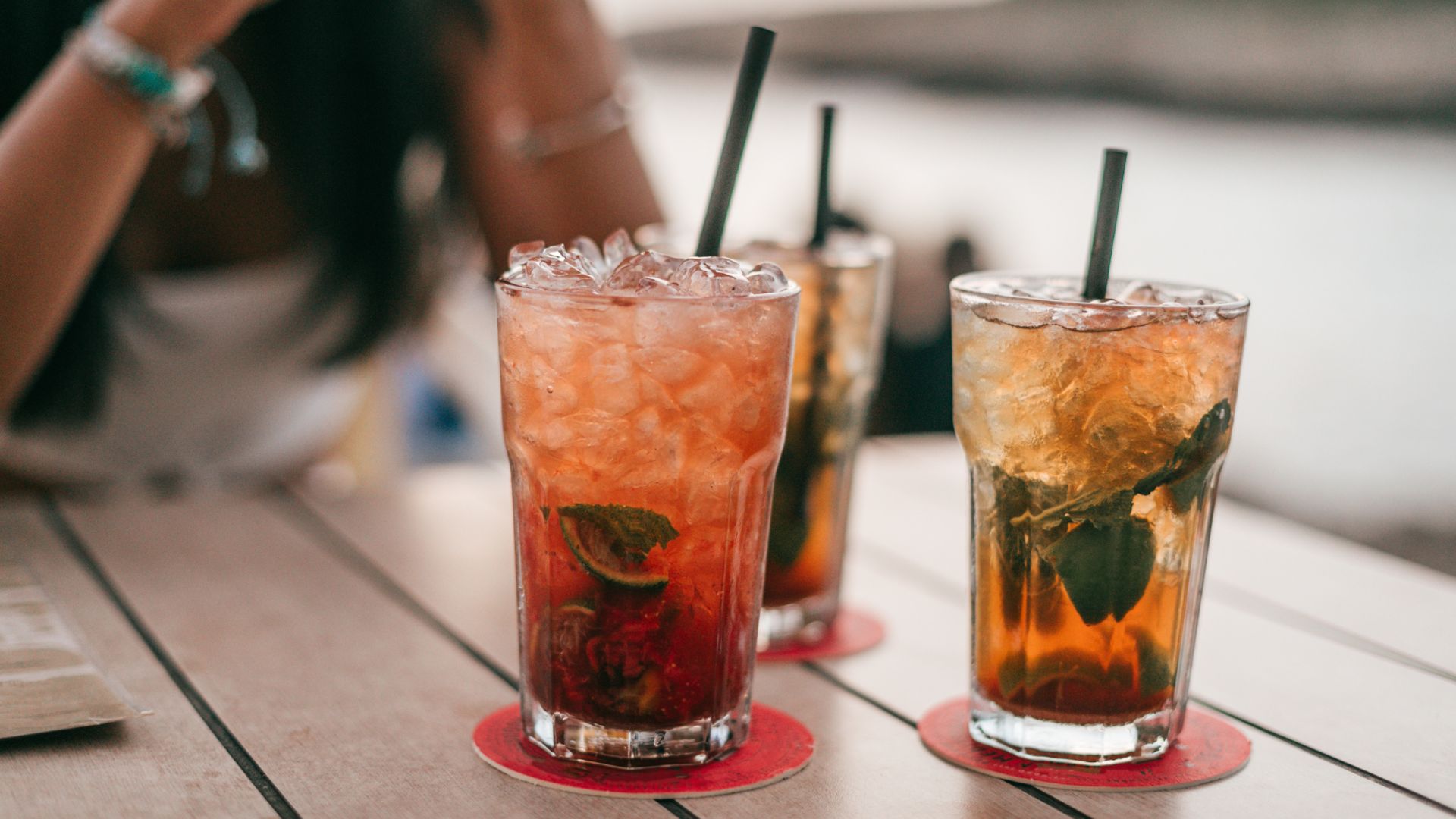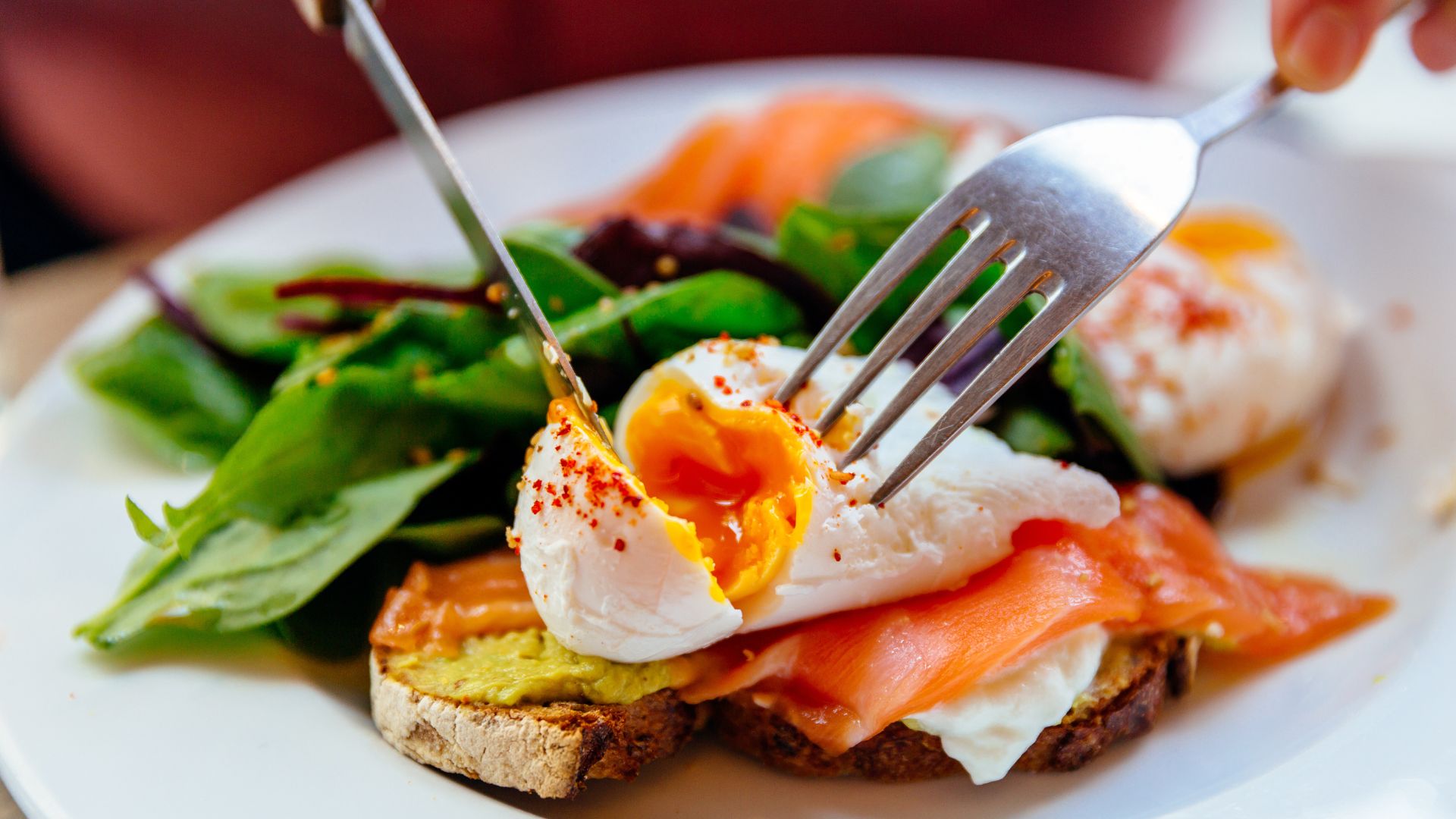How to prevent a hangover: Experts reveal whether it's really possible, plus what to eat before drinking
Nutritionists and a doctor reveal how to prevent a hangover ahead of party season


With the holiday party season here, you may be wondering how to prevent a hangover. Waking up with a woozy head, nausea, and confusion over what exactly happened the night before is no one’s idea of fun, especially when it’s been caused by just having one (or two) too many the night before.
We all know the best way to avoid a hangover is to limit the number of drinks you have in the first place. But whether it’s over-enthusiastic pouring from family members or a friend’s Christmas party, it’s very easy to get a little carried away.
From delivering the truth on how long hangovers last to a rundown of what you should eat before and after drinking, and myth-busting the concept of healthy alcohol, two nutritionists and a doctor speak to woman&home about how to prevent a hangover before it hits.
How to prevent a hangover
1. Drink water
“Ensure you’re well hydrated ahead of consuming your alcoholic drinks,” suggests nutritionist Jenna Hope. While you drink, you could always have a glass of water by your side or switch between alcoholic and non-alcoholic drinks through the night.

2. Choose your drinks carefully
If you want to learn how to prevent a hangover (and you don't fancy one of the best non-alcoholic drinks in a can), you should pass on the next glass of dark rum, cognac, dark whiskey, brandy, or bourbon, as these are all high in a chemical compound called congeners.
“Congeners are found naturally in some alcoholic drinks,” explains Hope. “They’re often a by-product of fermentation and can make it more difficult for the body to metabolize alcohol, meaning we metabolize it slower than other types of alcohol and this can have an impact on our hangover.”
Evans continues, “Homemade spirits tend to have extremely high congener content. But regardless of what you drink, if you still drink high volumes, it may still be a better choice of alcohol due to the polyphenol content which may support gut health when consumed occasionally.”
Sign up to our free daily email for the latest royal and entertainment news, interesting opinion, expert advice on styling and beauty trends, and no-nonsense guides to the health and wellness questions you want answered.
Instead, opt for drinks with lower levels of these chemicals. “Medium congeners include whiskey and white wine, while low congeners include vodka and beer,” says Evans.
3. Avoid carbonated drinks
Champagne and prosecco are the classic holiday tipples but if you’re looking to learn how to avoid a hangover, they’re worth avoiding. Research from the University of Manchester suggests that bubbles in alcoholic drinks, either sparkling beverages or carbonated mixers like coca cola and tonic water, speed up the alcohol absorption rate as they force the surface area of the stomach to expand.

4. Skip the espresso martinis
And when you're looking through the cocktail menu, it's also worth noting that staying away from drinks with caffeine in them - like our much-loved espresso martinis - is also a good idea.
They might perk us up if we’re feeling tired at the beginning of the night and there's research to suggest that, contrary to popular belief, caffeine itself isn't dehydrating, when consumed in large quantities it may have a diuretic effect. In the short term, research by the University of Birmingham shows this isn't too much of a problem, but could cause issues if you have more than one. Plus, you could end up with an irritated stomach lining as too much coffee in particular leads to digestive issues later on.
Not only that, but if your bartender doesn’t do you a kindness and swap regular espresso for decaf towards the end of the night, your chance of a good night’s sleep is very minimal.
5. Make sure to eat before you start drinking
It’s always worth having a meal before you start drinking alcohol, says registered nutritional therapist Natasha Evans. “Alcohol is a gut irritant firstly, and secondly, it will delay the absorption of alcohol somewhat,” she explains.
“Aim for a meal composed of whole foods, including proteins like eggs, meat, fish, organic tody, beans, and legumes, and healthy fats like avocado, nuts, seeds, dairy, and extra virgin olive oil, as well as some fiber from plants, such as vegetables, berries, whole grains, and pulses,” she says. “Proteins and fats delay gastric emptying, so they can slow the absorption of alcohol. They can also keep blood sugar levels more balanced and may help to deter you from late-night snacking.”
Fruits and vegetables are also a great choice, Evans adds. "They’re a source of electrolytes, so they’ll help with the imbalance caused by alcohol, help to support liver health, and provide a source of antioxidants that may help combat some of the damage done from drinking.”

6. Make sure you have enough vitamin B in your diet
Unfortunately, the idea that eating certain foods will stave off a hangover is just a rumor. “There are no foods that can prevent a hangover,” confirms Hope. “However, some foods contain the key nutrients required to help us metabolize alcohol, such as magnesium and B vitamins. If your micronutrient stores are low, alcohol can deplete them further and make the hangover worse.”
So, to help your body metabolize the alcohol at its full potential, opt for foods such as dark chocolate, green leafy vegetables, almonds, and seeds, as these are all high in magnesium. Foods high in B vitamins include beans, pulses, wholegrains, eggs, meat, and fish.
7. Stock up on vitamin C
Vitamin C isn't just helpful for maintaining a good immune system. "It can help your body metabolize alcohol," says Hope, but it's often depleted by the body when drinking. Restoring your supply may help your body handle the alcohol a little better.
"Unfortunately though," she adds. "It's not a magic answer [to preventing a hangover], so enjoy yourself but do drink responsibly." It may also be worth exploring some of the benefits of not drinking alcohol generally too if you're looking to cut back in the new year.
8. Go to sleep
The restorative power of sleep is famous. And while it won't do you any favors on its own if you've had a few too many glasses, getting enough sleep and finding the best time to sleep and wake up for you post-drinking will certainly help you feel better.
Research from the University of California shows that sleep is essential for keeping us alert throughout the day and helping us to sustain attention on particular tasks. It's also proven that getting enough sleep helps to consolidate memories and that sleep has a very important role in regulating our emotions.
However, with more alcohol comes less quality sleep, according to research by Ulster University. So, if you're looking to learn how to sleep better this year, cutting back on drinks could be the first step.

9. Workout before you drink
Finding the time to work out in winter, let alone when you've got lots of social occasions coming up, may not be possible for everyone - but it could help you drink less and prevent a hangover.
Several large studies, including one by the University of Miami, have looked into this idea and found that those who are physically active are likely to be moderate drinkers. While they're less likely to completely abstain from alcohol than others, they're also more likely to avoid drinking excessively. This could be down to several factors, but most researchers believe that the good feelings created by the release of hormones like dopamine and serotonin during exercise make those who exercise less likely to reach for alcohol. Other research by Brown University shows that working out reduces anxiety levels as well, meaning some people are less likely to reach for a drink to lessen feelings of nervousness around social occasions post-workout.
However, if you hit the gym or go for a run before you head out, drink plenty of water and perhaps even stock up on electrolytes through a sports recovery powder as exercise can also cause dehydration. The addition of alcohol could make your hangover even worse the next day.
10. Try a hangover supplement
Wouldn’t it be easy if you could just take a pill or a sachet before you start drinking and never worry about a hangover again? That’s what brands like AWKN and LVDY are trying to achieve. While there is limited research to show that they actually work, both contain ingredients that may lessen the symptoms of a hangover for some people.
The first is made of all-natural products, with an ingredients roundup that sounds like a shopping list from a health food store: Milk thistle, Korean ginseng, curcumin, Goji berry, ginger, and prickly pear, among others. AWKN claims that these ingredients "support and restore your liver" through the metabolizing process and reduce the amount of acetaldehyde, one of the biggest drivers of a hangover, in the body. While LVDY tablets contain glutathione and NAC as active ingredients, which the company suggests also helps the body's alcohol defense.
Does it really work? I tried the AWKN supplements for myself and didn't notice much difference from how I'd normally feel after a night of drinking. As I always try to drink moderately, I woke up with a bit of a headache that was gone by mid-morning - but I'd have to say I think that's more of a result of water before going to sleep and a later wake-up time than the sachet.
What immediately helps a hangover?
If it's too late to prevent a hangover and you're in the grips of all the nasty symptoms, the most important thing to do is to hydrate straight away. "Along with drinking water, you can usually replace any lost electrolytes easily through food. Bananas are a good source of potassium and avocados, nuts, and sweet potatoes are a good source of magnesium," says Dr Jatindar Thompson, a general practice doctor.
Eating fresh fruits, vegetables, soups, and broths should also help with symptoms. "And if you have lost a lot of fluids and consequently electrolytes from vomiting or have diarrhea, you may want to try a low-sugar electrolyte drink."
It is worth avoiding certain foods though. Dr Thompson, who works at Spire Gatwick Park Hospital, explains that many of the traditional so-called 'hangover cures' may make the symptoms worse. "Avoid foods that will be harder for your body to digest like dairy products, refined sugar, and fatty meat. A common myth persists that eating greasy food after drinking alcohol helps absorb the alcohol from your system, easing hangover symptoms. Unfortunately, this isn’t true. Any alcohol you drank will already have entered your bloodstream."
Furthermore, she says, "high-fat foods take longer to digest than protein or carbohydrates, putting extra strain on your stomach when it may already be feeling delicate."
As all our experts say though, there's no way to either prevent or cure a hangover apart from simply drinking less. If you think you may have a drinking problem, reach out for help and speak to your doctor.

Grace Walsh is woman&home's Health Channel Editor, working across the areas of fitness, nutrition, sleep, mental health, relationships, and sex. She is also a qualified fitness instructor. In 2025, she will be taking on her third marathon in Brighton, completing her first ultra marathon, and qualifying as a certified personal trainer and nutrition coach.
A digital journalist with over seven years experience as a writer and editor for UK publications, Grace has covered (almost) everything in the world of health and wellbeing with bylines in Cosmopolitan, Red, The i Paper, GoodtoKnow, and more.